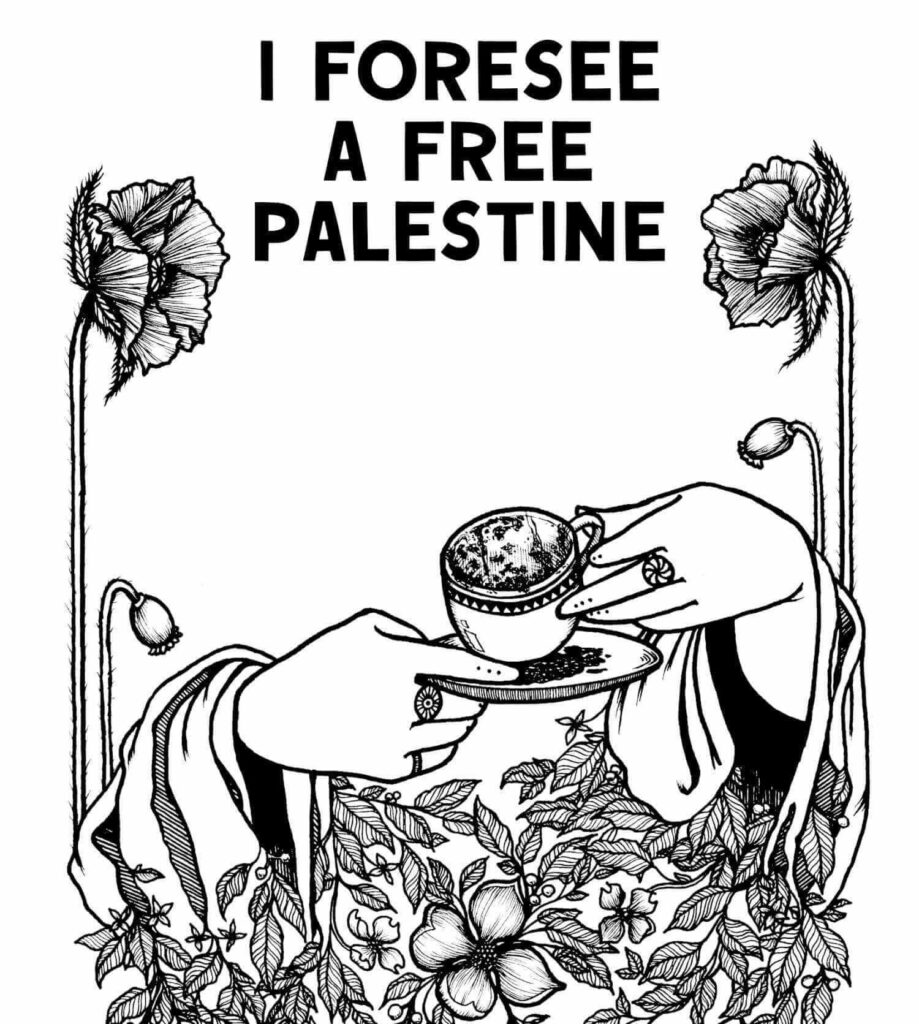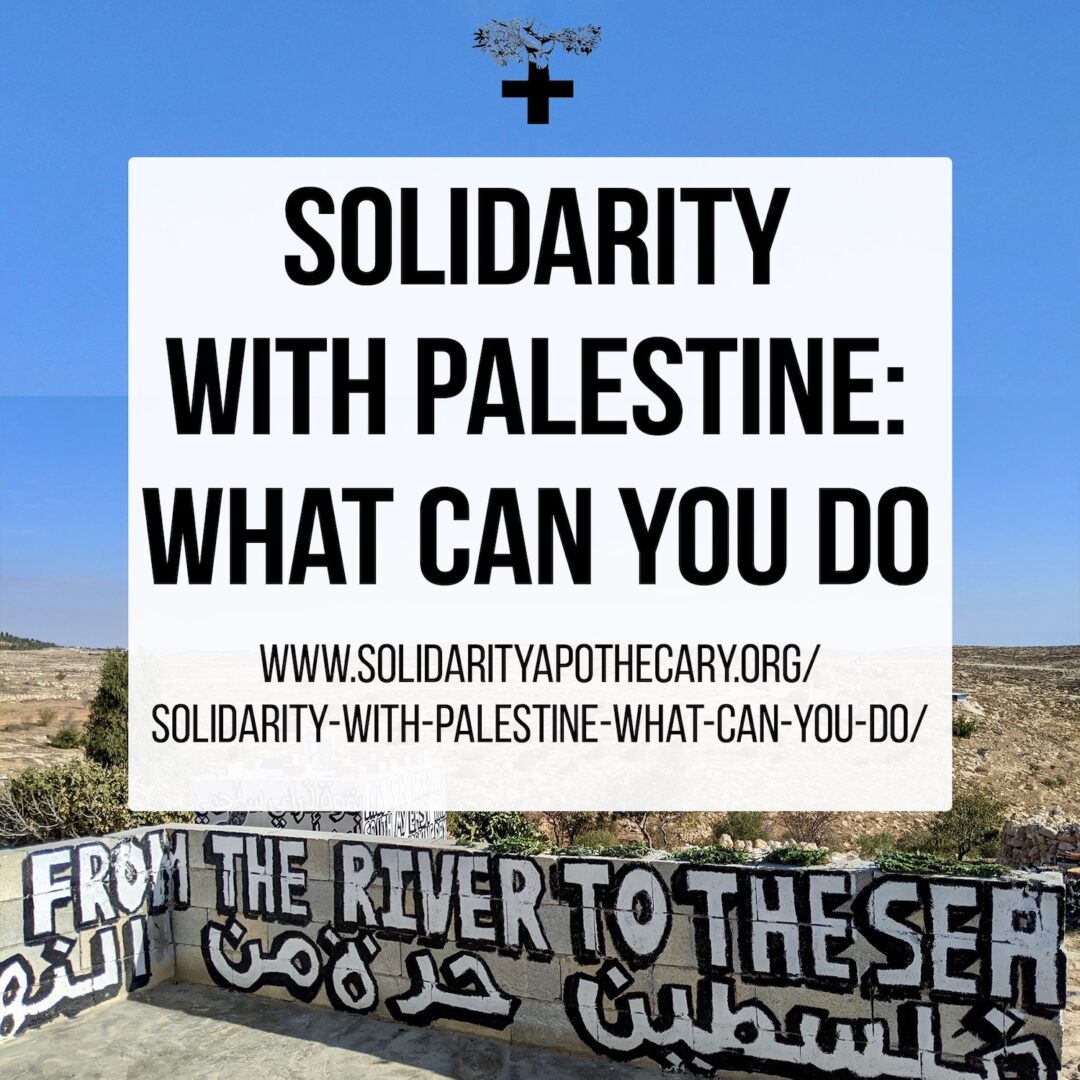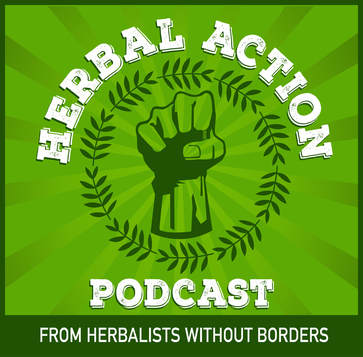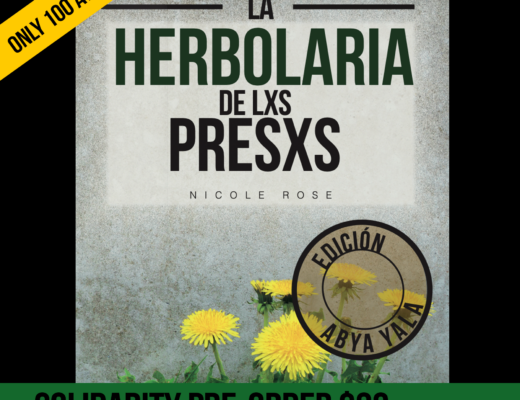This blog post has been created to bring together many of the links and resources being shared online into an easier-to-access format so that people can more easily take action. Please share widely!
This list only scratches the surface! If you have resources to include please email them to me at info @ solidarityapothecary.org with the subject line SUGGESTED RESOURCE and I will do my best to include them.
All images from the Just Seeds Collective unless otherwise credited.
1. Listen to and amplify Palestinian voices
It shouldn’t need an introduction but sadly it does – Palestinian voices must be centred. This includes people living in Gaza, the West Bank and the Diaspora. They have been talking about the violence of the occupation for the last 75 years. Before sharing some latest influencers’ opinions, or a journalist who has been indoctrinated with zionist ideology, I beg you, please share voices from Palestine and amplify what they are saying.
People sharing from Gaza directly:
Other accounts to follow
- @savesheikhjarrahnow
- @gazangirl
- @sbeih.jpg
- Eye on Palestine
- Shahd Abusalama
- Find other lists of people to follow in the incredible All Out For Palestine – Digital Action Toolkit from the Palestinian Feminist Collective – https://actionnetwork.org/user_files/user_files/000/098/772/original/All_Out_Palestine_Toolkit_3.0.pdf
Other Palestinian-led organisations to follow
- International Solidarity Movement
- Adalah Justice Project
- Youth of Sumud
- Palestinian Youth Movement
- We Are Not Numbers
Podcasts
*See more resources in the last section
- The Palestine Pod
- International Solidarity Movement Podcast – 14 interviews with people in Palestine exploring the wide impact of the occupation and diverse forms of resistance
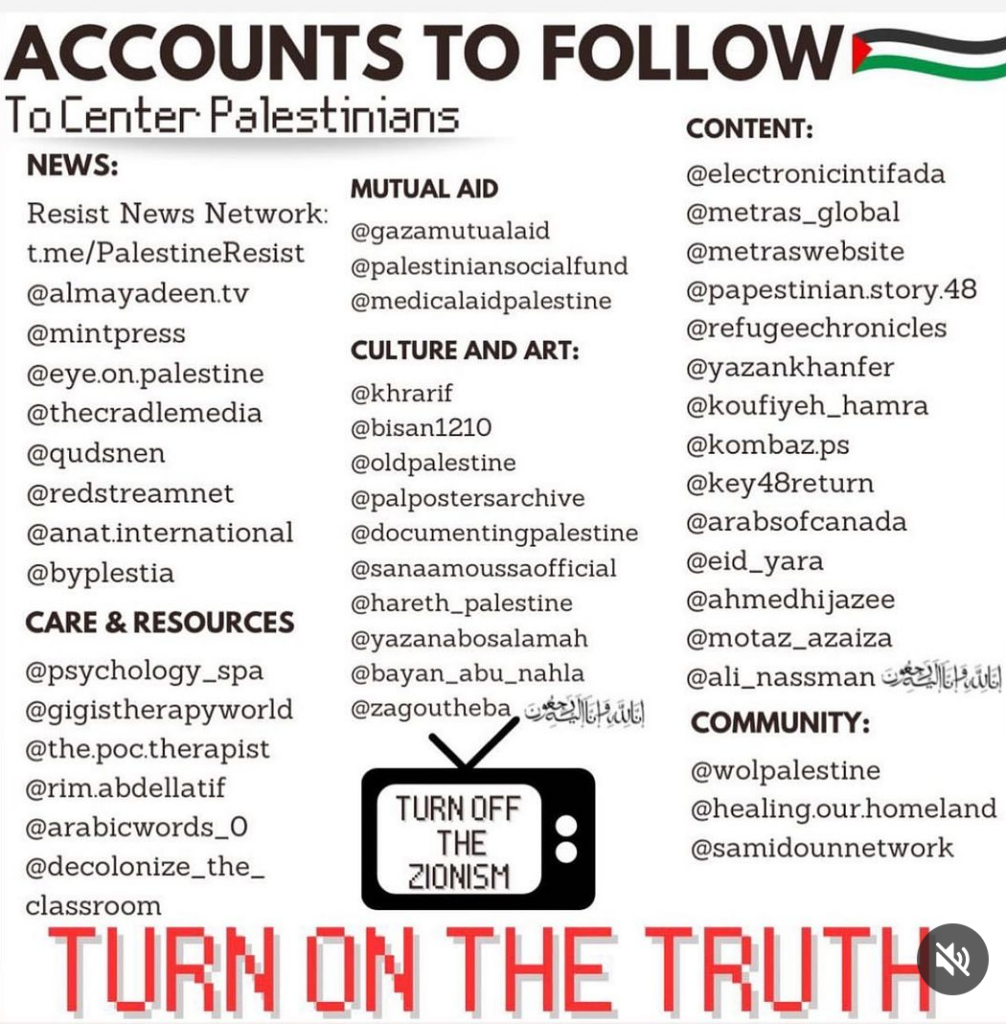
Anarchist & Abolitionist resources
- Voices from the Front Line Against the Occupation: Interview with Palestinian Anarchists
- Fauda Anarchist Movement Telegram Channel
- Interview with 3 members of Fauda on the @abolishtheusa instagram
- Not a Palestinian but an interview with an Israeli anarchist: We can’t afford to remain silent
- From the Galilee to Gaza – A Voice from Palestine, Crimethinc.com
- Woke Scientist – Ayesha Khan, Ph.D.- not Palestinian but active in Palestinian solidarity for a very long time, sharing perspectives from an anarchist/abolitionist perspective
- Solidarity with Palestine – A Radical Black Feminist Mandate: A Reading List
- Abolition Means No More War: FREE PALESTINE NOW! Critical Resistance event
- Imprisoning Palestine – Zionist colonialism through an abolitionist lens by Rawan Masri & Fathi Nemer
News Websites (beyond social media content)
- Electronic Intifada
- Al-Mayadeen
- Middle East Eye
- Mondoweiss
- +972 magazine
- International Middle East Media Center
- #PalestineChronology: Press Summaries on the War on Gaza
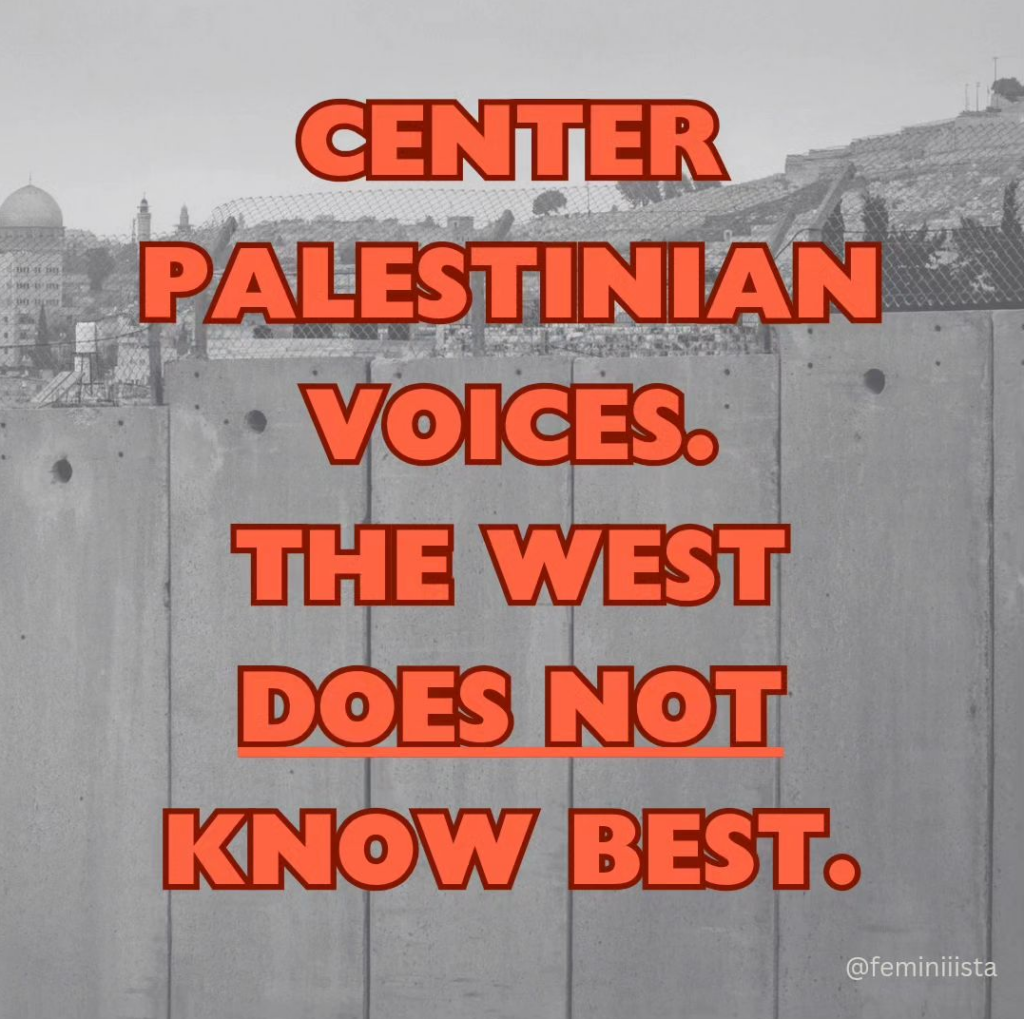
2. Join a local group (or start one)
We are much more effective when we build collective power. All of the actions on this blog post, can be made stronger by working as a group. There are many solidarity campaigns worldwide in support of Palestine who welcome volunteers and new people to join.
If there is no group in your area, you could work with a national organisation to start a branch in your region. Likewise, groups don’t have to be formal – you can come together with friends and comrades and organise autonomously!!! You can start your own group or collective to take action together.
England/Wales/Scotland
- Find a list of Palestinian Solidarity Campaign branches here – https://palestinecampaign.org/get-involved/branches/
- Palestinian Youth Movement active local chapters
- The International Solidarity Movement has local groups
- Na’amod is a movement of Jews in Britain seeking to end the occupation
- Palestine Action (see direct action section) many different roles available including support roles such as court support. Get in touch to be put in touch with people locally.
So called United States
- Palestinian Youth Movement has active local chapters
- Jewish Voice for Peace local groups https://www.jewishvoiceforpeace.org/local/
- US Campaign for Palestinian Rights has a directory of different local groups
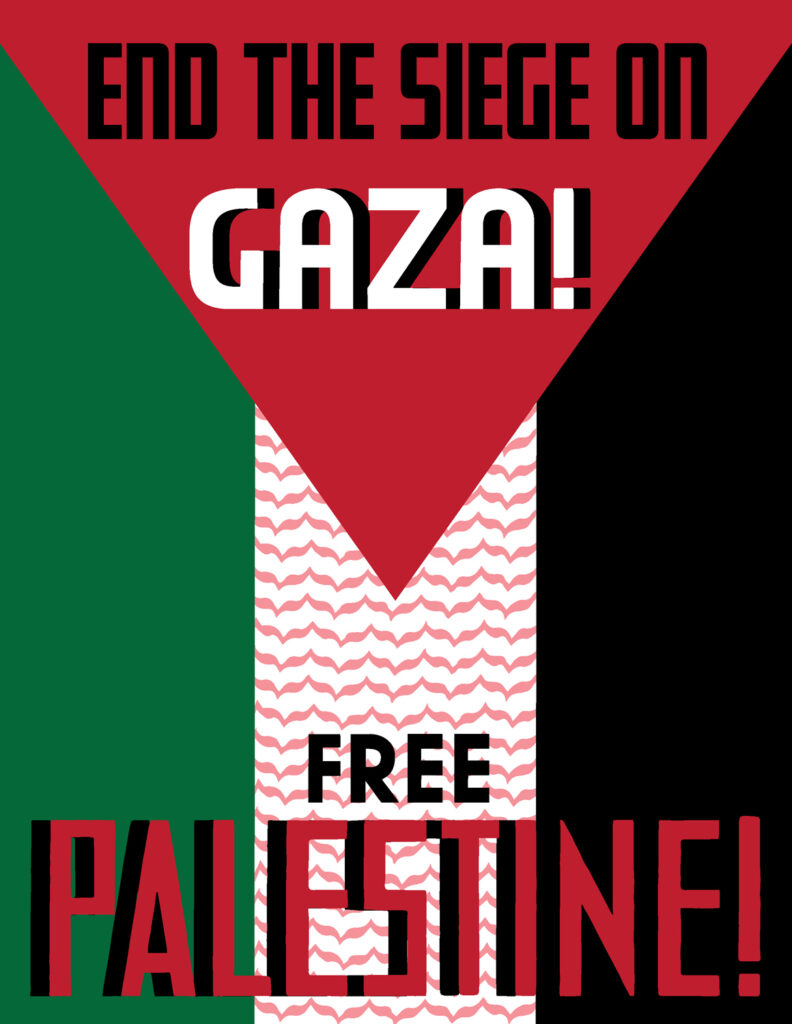
3. Take to the streets (if you can)
I want to acknowledge at the start of this section that not everyone can participate in a physical demonstration – folks may have a disability, chronic illness, be immunecomprimosed and unable to risk covid, have caring responsibilities or other reasons why it’s not possible to join a demonstration with thousands of others. All forms of resistance are important and valid! See the many inspiring posts about disability justice and resistance. Check out the Resting Up Collective who have published a guide to protesting from bed: practical tips for disabled protestors.
Demonstrations are an important way of demonstrating solidarity and showing people in Palestine that they are not alone – that there is a global movement of people who care and who are joining them in their struggle. Marches are a great entry point for many people into a movement.
While marching from A to B can commonly feel disempowering, demos don’t have to repeat this format. Groups like Palestine Action have shown that demos can become much more creative and high impact. Through history, many grassroots campaigns have targeted power holders like politicians or companies, through mobile demos (visiting several sites in a row in an unpredictable and unannounced manner), to home demos, sit-ins, infrastructure blockades (stations, motorways etc), ongoing pickets and occupations, national days and weeks of action that are globally coordinated to pressure a target, and so many more.
Here are some listings of publicly announced demos and marches:
International/Global Listings
- Samidoun Global Calendar of Resistance – https://samidoun.net/2023/10/calendar-of-resistance-for-palestine-events-and-actions-around-the-world/
England/Wales/Scotland
- Palestine Solidarity Campaign Events – https://palestinecampaign.org/events/
So called United States & Canada
- Gaza Is Palestine: Find a Protest Near You
- Find a Protest – US Campaign for Palestinian Rights
- November 4th National March in Washington
Organise a vigil
The Palestinian Feminist Collective write: “Commemorate the martyrs: It is important to continue organizing and joining actions against genocide and colonial oppression, but it is also important to commemorate and honor those who have been killed. Organize a vigil where the martyrs are remembered, grieved, and mourned.”
List of martyrs in English – Adults and Children
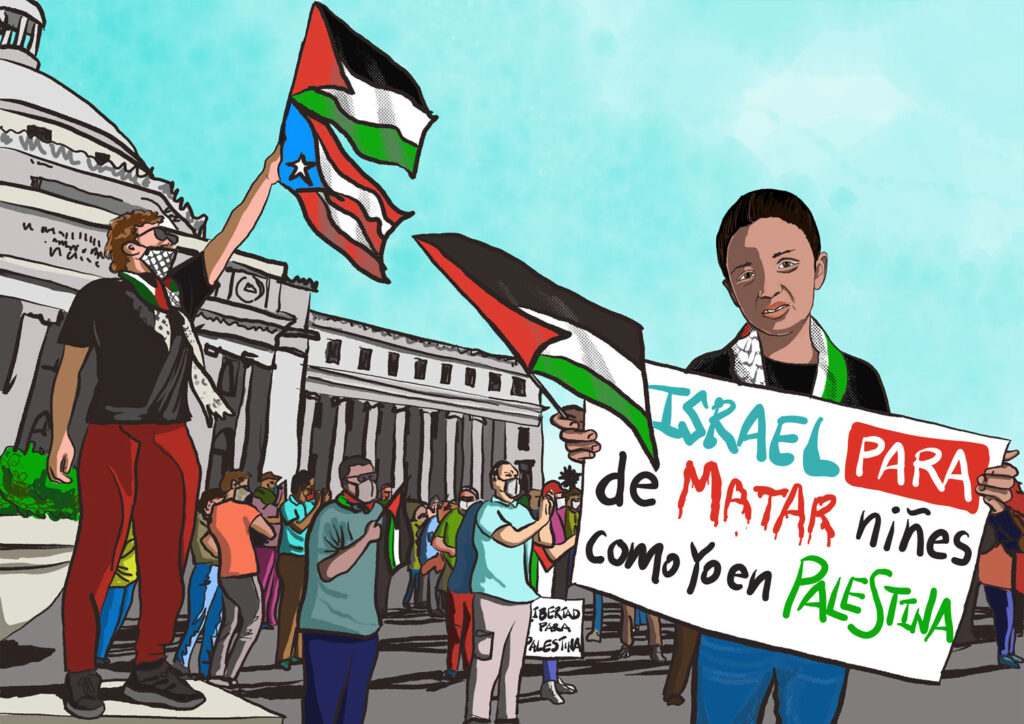
4. Take direct action
Taking direct action has been a tool of social struggle since the dawn of people resisting domination and oppression. We have a lot of cultural connotations now of what direct action means. No one has the monopoly on what direct action is – though history we have examples such as sabotage, property damage, guerrilla and underground resistance, strikes, civil disobedience tactics such as sit ins, lock-ons, occupations and other forms of resistance.
People may take action anonymously and independently or they may do it in a coordinated way publically as part of a broader political strategy using the media and the courts.
One group taking direct action is Palestine Action, which is a direct-action network of groups and individuals formed with the mandate of taking action against the sites of Elbit Systems and other companies complicit in Israeli apartheid, calling for all such sites to be shut down. Their struggle has gone global with Palestine Action now launched in the so-called United States.
They recently published a new list of over 50 targets complicit in Elbit’s murderous arms trade that has been made available on elbitsites.uk. They have also published a publication called Palestine Action: The Underground Manual which contains the essential information for creating an autonomous group able to independently take direct action.
Just on a personal note, I would encourage anyone considering direct action to seriously think about their security practices and the consequences of repression. Being arrested or going to prison is not a light experience and people should be psychologically and practically prepared and informed of the consequences of the risks they are taking (and not assuming they will be found not-guilty because others have been in previous trials).
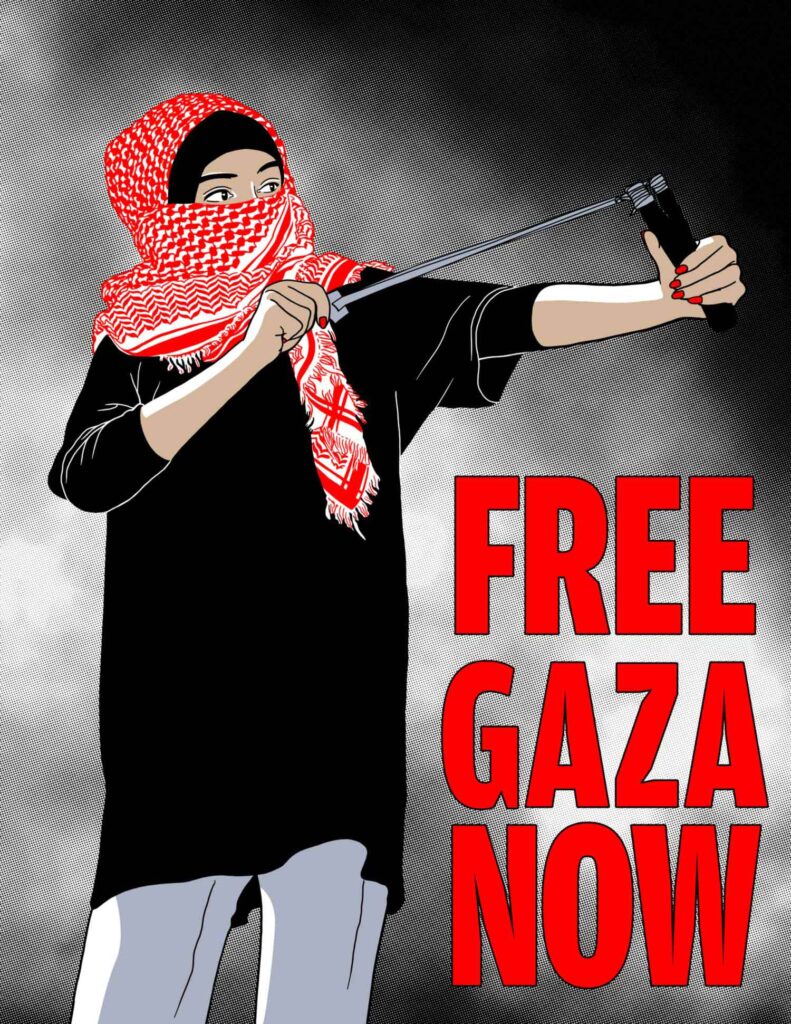
5. Pressure the State
As an anarchist, I heavily recognise the limits of lobbying the state and believing it is some straightforward ticket to social change – it’s literally not. The only thing politicians care about is political reputation and re-election. Therefore, they may pay attention out of self-interest if they believe an issue is of much political weight that how they act could sway further voters. The email tools below take literally seconds to complete and can be a way of operating mass pressure that thousands of people care about an issue.
Pressuring the state doesn’t have to be just via emails and letters; there are many other forms of direct action that can make sure politicians know they have blood on their hands and are complicit in a genocide.
Some email action alert tools:
England & Wales
- Palestine Solidarity Campaign – Email tool to email your MP – https://palestinecampaign.eaction.online/ceasefirenow
So called United States
- Tell Congress: Stop Fueling the Gaza Genocide: AJP
- Let Gaza Live! Ceasefire Now: AJP and MPower
- Demand an IMMEDIATE Ceasefire in Gaza: AJP Action
- Tell Your Rep: We Demand a Ceasefire Now: Cori Bush
- Ceasefire Now: JVP
- End the Siege of Gaza Now: PYM
- Stop the Gaza Genocide: USCPR
- Email Congress: Stop Funding the Gaza Genocide: USCPR
- Urgent! Call Congress: CEASEFIRE NOW!: USCPR
- Defund Israel
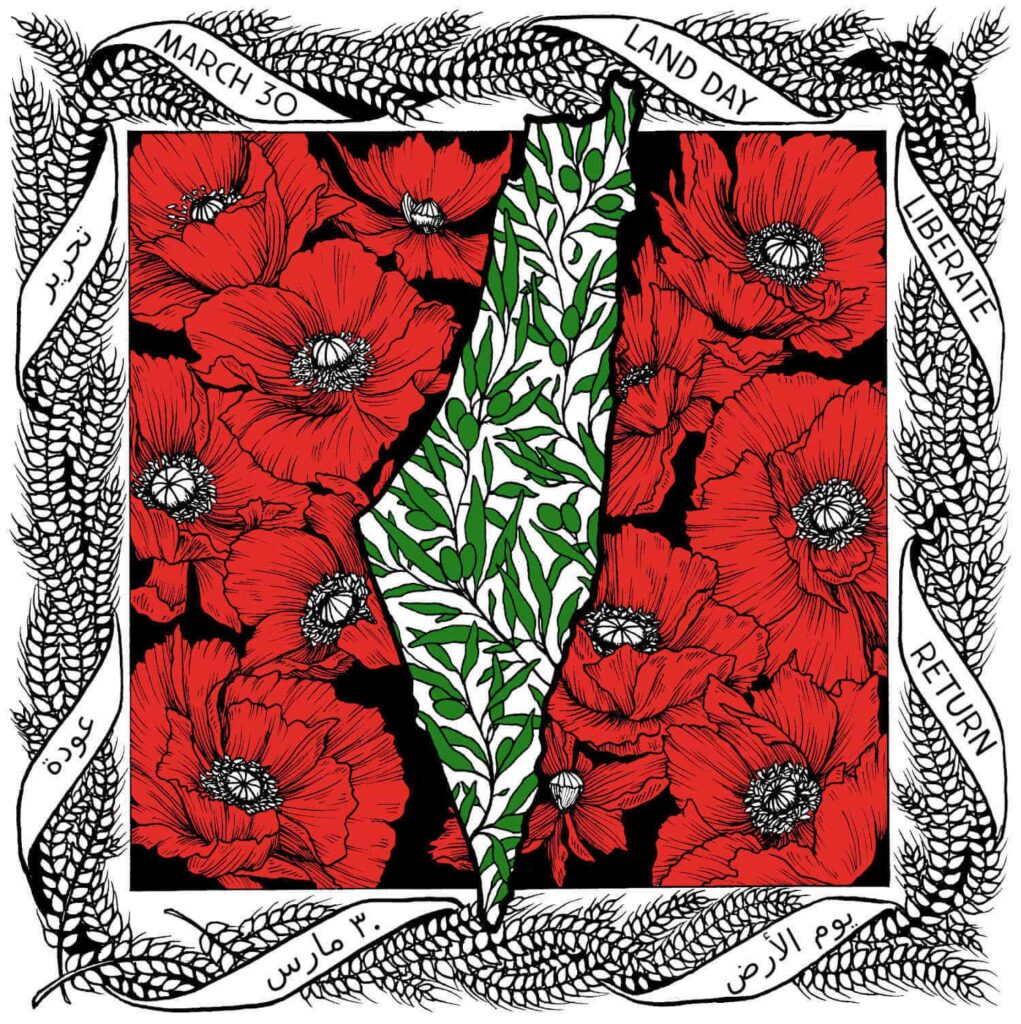
6. Donate to Palestinian Groups and organise fundraisers
Donating to groups working on the ground is incredibly important. If you are on a low-income and unable to afford to donate much yourself, then organising a fundraiser with others can be an important act of solidarity. Fundraisers have the dual impact of raising money and making a struggle more visible.
Some places to donate:
- Middle East Children’s Alliance (MECA) (supported by the Palestinian Feminist Collective) – Donation Link
- Medical Aid for Palestinians
- Gaza Mutual Aid – has call-outs with paypal links for different mutual aid requests & fundraisers
- Palestinian Medical Relief Society – Donation Link
- International Solidarity Movement Crowdfunder (link coming soon)
- Sulala Animal Rescue is working in Gaza, paypal link in bio of @sulalaanimalrescue
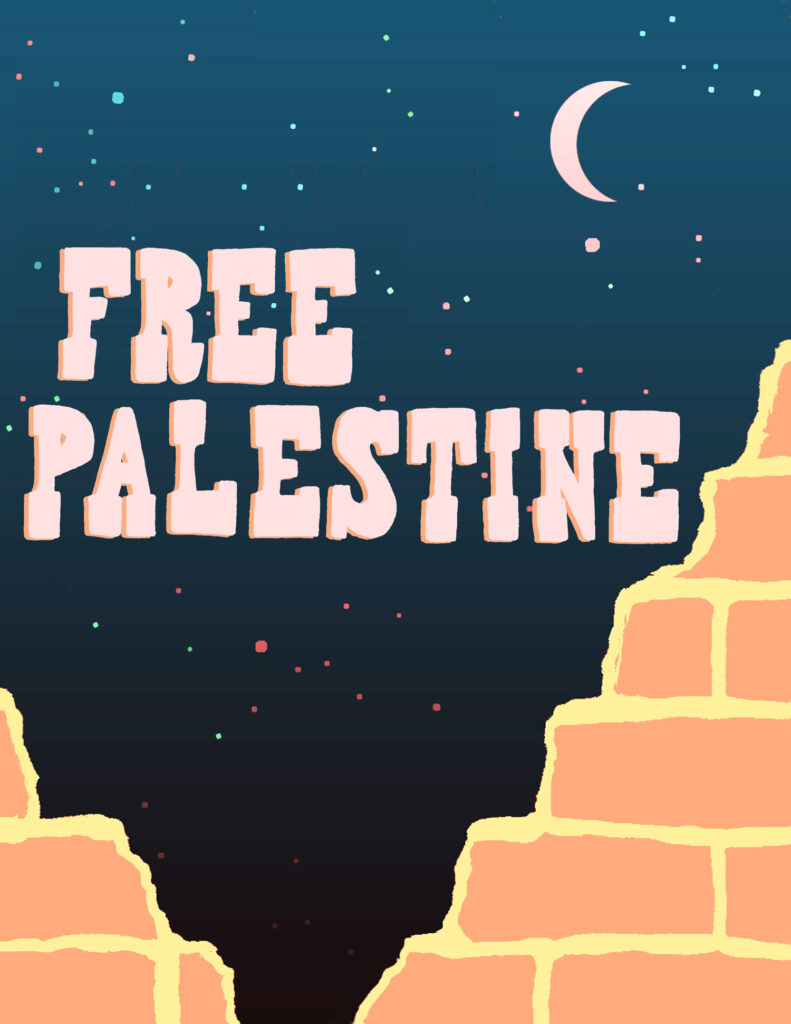
7. Volunteer in Palestine with the International Solidarity Movement
The International Solidarity Movement (ISM) is a Palestinian-led movement committed to resisting the long-entrenched and systematic oppression and dispossession of the Palestinian population, using non-violent, direct-action methods and principles. Founded in August 2001, ISM aims to support and strengthen the Palestinian popular resistance by being immediately alongside Palestinians in olive groves, on school runs, at demonstrations, within villages being attacked, by houses being demolished or where Palestinians are subject to consistent harassment or attacks from soldiers and settlers as well as numerous other situations. Learn more about ISM at: https://palsolidarity.org/about/
ISM are calling for more volunteers to join ISM in the West Bank:
“Colonial violence is rising in the West Bank, as Israeli soldiers and settlers seek reprisals against Palestinian communities. The Israeli government now feels it has additional clearance from the West to escalate its project of ethnic cleansing. The International Solidarity Movement maintains its presence on the ground in the West Bank and East Jerusalem to stand in solidarity with Palestinians, provide protective presence and report on human rights abuses.
Given the dire situation, more volunteers are needed. We are calling for all those who stand in solidarity with Palestine to join ISM’s efforts on the ground in the West Bank.”
To get involved, please email ISMtraining@riseup.net, who are coordinating trainings and offer support to people volunteering in Palestine.
If you’re interested in learning more, check out the ISM Podcast with interviews with ISM volunteers here: https://palsolidarity.org/2023/02/the-international-solidarity-movement-podcast-episode-five-ism-vounteer-experiences-on-the-frontlines/
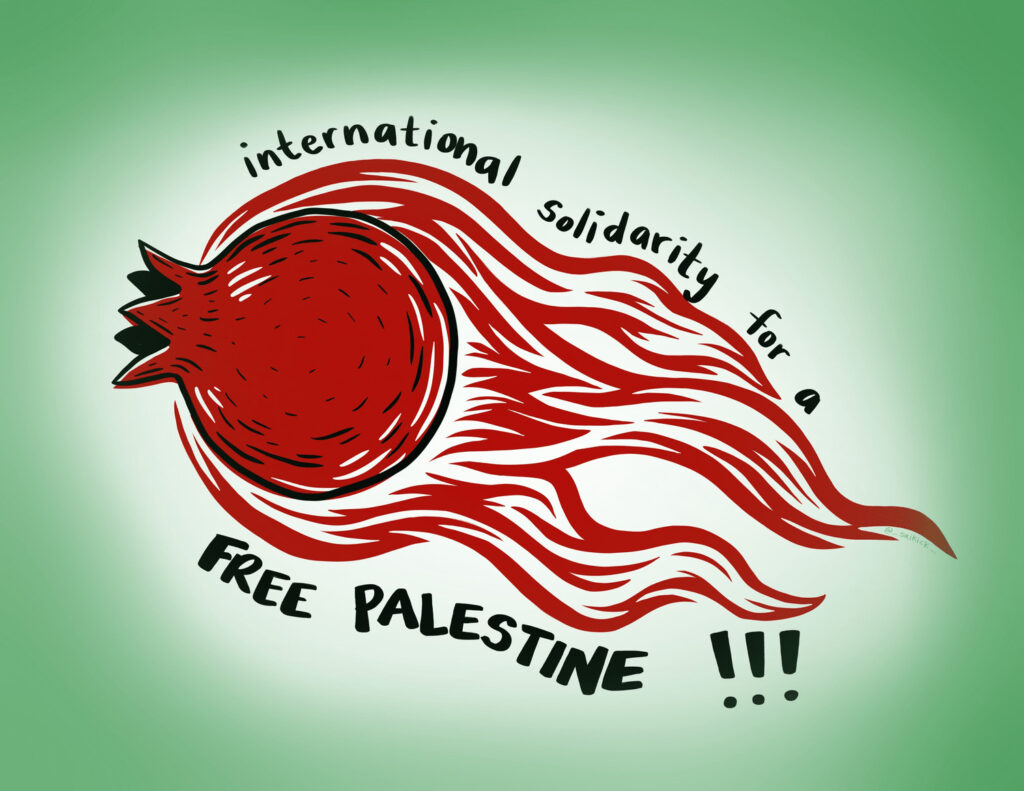
8. Participate in Boycott, Divestment and Sanctions campaigns
Boycott, Divestment, Sanctions (BDS) is a Palestinian-led movement for freedom, justice and equality. BDS upholds the simple principle that Palestinians are entitled to the same rights as the rest of humanity. Learn about the BDS Movement at: https://bdsmovement.net/ From the BDS site:
BOYCOTTS involve withdrawing support from Israel’s apartheid regime, complicit Israeli sporting, cultural and academic institutions, and from all Israeli and international companies engaged in violations of Palestinian human rights.
DIVESTMENT campaigns urge banks, local councils, churches, pension funds and universities to withdraw investments from the State of Israel and all Israeli and international companies that sustain Israeli apartheid.
SANCTIONS campaigns pressure governments to fulfil their legal obligations to end Israeli apartheid, and not aid or assist its maintenance, by banning business with illegal Israeli settlements, ending military trade and free-trade agreements, as well as suspending Israel’s membership in international forums such as UN bodies and FIFA.
Boycotts are most effective when part of a political pressure campaign, rather than just individual consumer choices.
Here are some active BDS campaigns and how you can participate:
- Companies currently being boycotted
- List of companies from Lets Talk Palestine
- Use an app with companies to boycott – https://www.buycott.com/
- Apartheid Off Campus
- Boycott Puma
- Defund racism
- Corporate Occupation
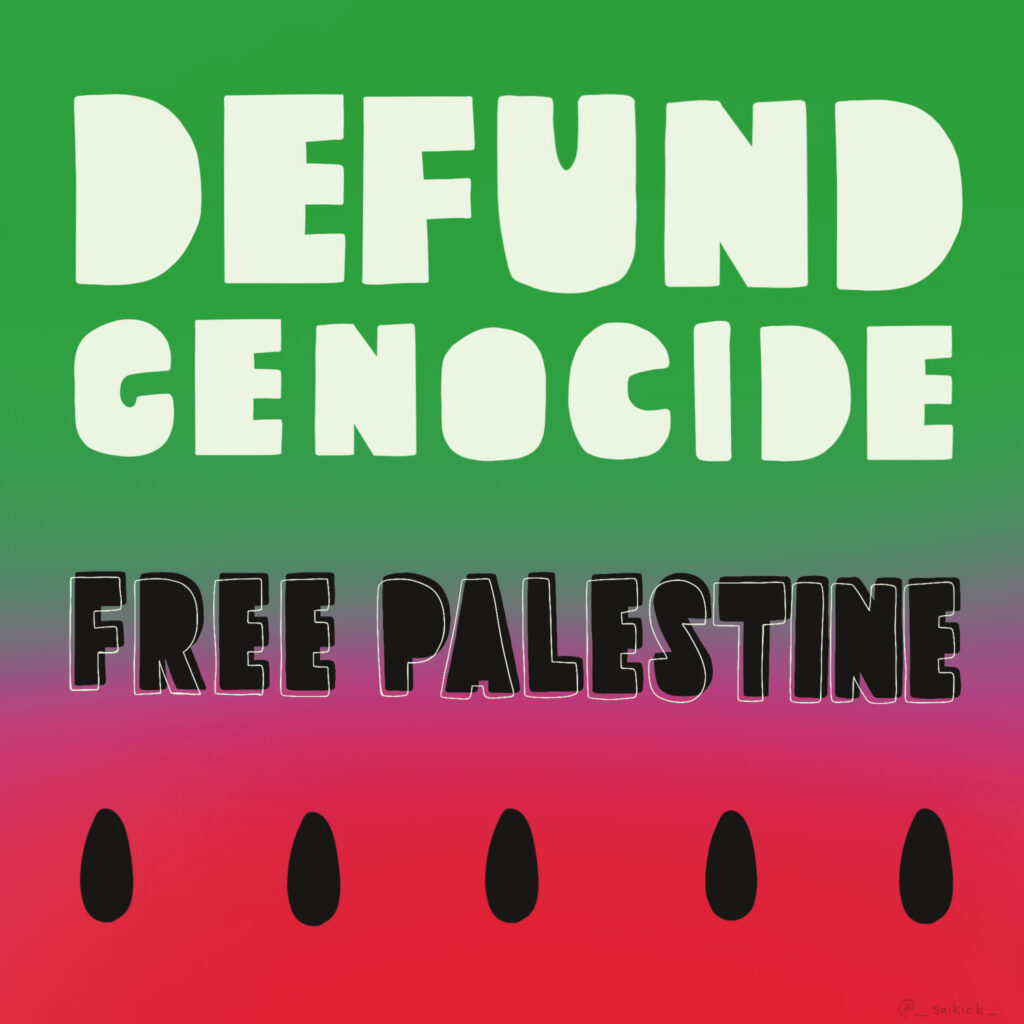
9. Support & Collective Care
Checking in with your Palestinian, Arab and anti-zionist Jewish friends is incredibly important right now as racist and anti-semitic attacks are escalating. People are nervously exhausted from checking that their relatives are alive, dealing with dehumanising media and from organising political resistance and solidarity. This isn’t a one-time or new experience for people – this is generational trauma played out in everyone’s lives for decades. How we take care of each other matters right now (and always).
Some examples of projects focusing on collective care:
- Healing Justice London is organising support spaces for Palestinians see their instagram for more details
- A healing guide has been published – CURCUM’s Trees: A Decolonial Healing Guide for Palestinian Community Health Workers
- DC Mutual Aid Apothecary have been distributing nervous system support and grief medicine to local Palestinian organisers
- There is a Healing Clinic in solidarity with Palestine offering grief support and free healing services in Miami, Florida
Anti-repression resources
Many people are experiencing repression right now for expressing solidarity with Palestine. Whether this is arrests at demonstrations or people losing their jobs and livelihoods for speaking out.
The All Out For Palestine – Digital Action Toolkit from the Palestinian Feminist Collective has brought together an amazing array of anti-repression resources.
For folks in England/Wales/Scotland, the Green and Black Cross has several legal resources.
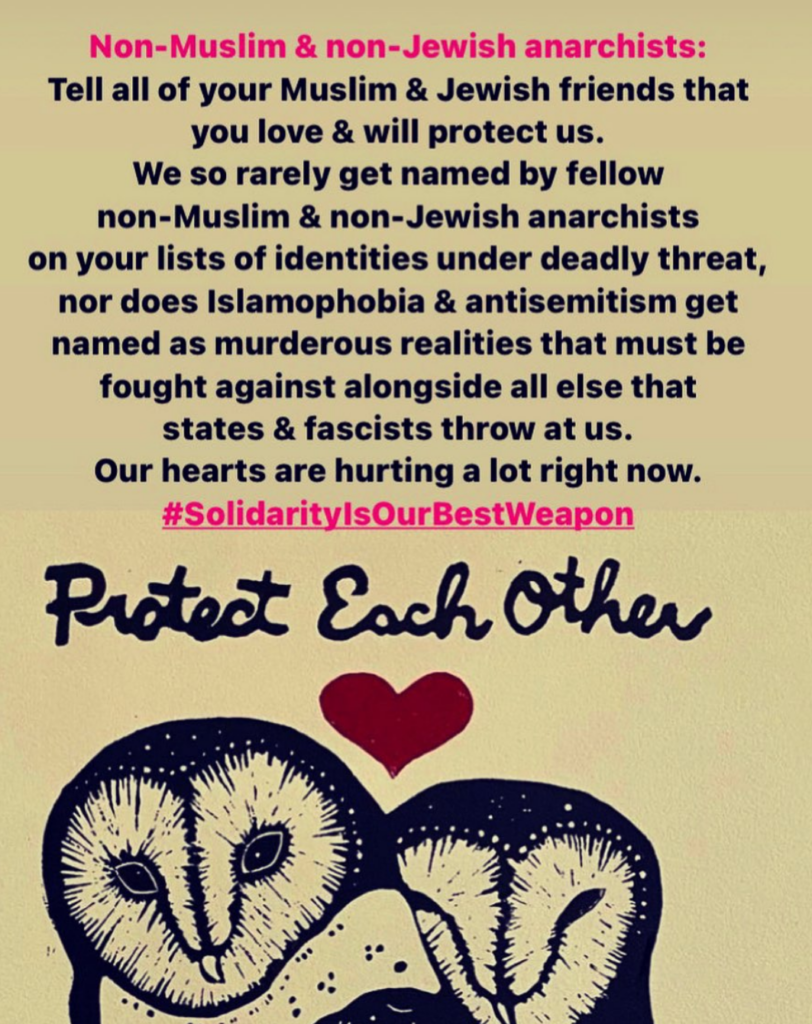
Graphic by @wendyelisheva
10. Educate yourself and others about Palestine
Educating yourself and others is essential to all forms of social struggle. It is a lifetime’s process!!! Something we need to consistently dedicated time and energy to because we are always learning.
Here are several resources for learning more about the Palestinian struggle:
- See a HUGE list of learning & teaching resources in the All Out For Palestine – Digital Action Toolkit from the Palestinian Feminist Collective – https://actionnetwork.org/user_files/user_files/000/098/772/original/All_Out_Palestine_Toolkit_3.0.pdf. They have extensive links to resources on:
- Current genocide in Gaza
- Palestine 101
- Reading Lists
- Settler Colonialism & decolonization
- Apartheid
- Palestinian Resitance
- Joint Struggle
- Connections of oppression
- Anti-normalization
- History
- Scholars
- Films, Music, Literature
- Resources for Children and Young Adults
- Palestine as a feminist issue
- Palestinian Youth Movement Reading List https://palestinianyouthmovement.com/reading-list
- All the Walls Will Fall: 2023 Palestine Liberation Resource List. Curated by the Popular University of the Palestinian Youth Movement.
- Tinyurl.com/Palestinetexts – massive collective of resources curated by Palestinian woman @izdiharafyouni
- Shoal Collective – group from England that have been organising consistent solidarity with Palestine for over twenty years. They have a number of free publications available to download including Interviews with Radical Palestinian Women. See their publications here.
